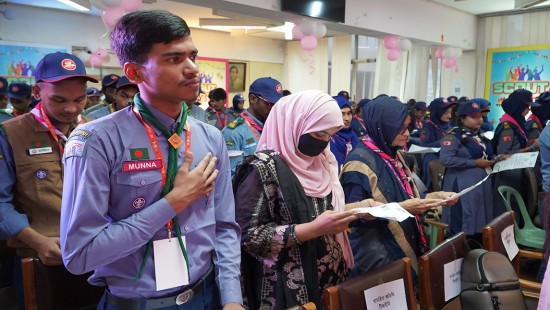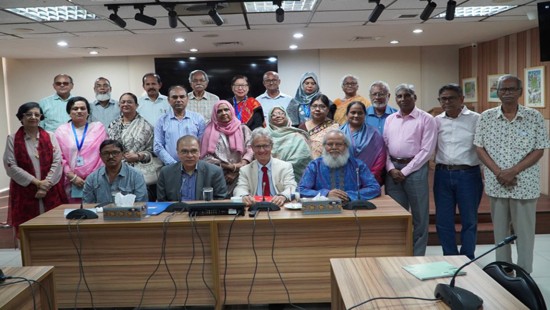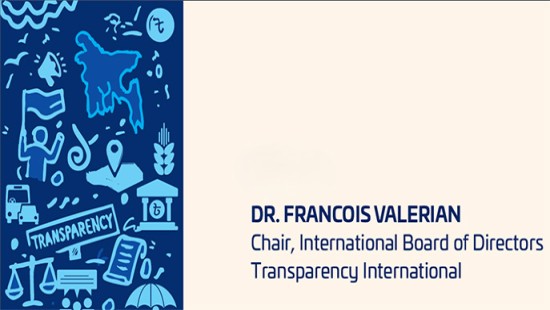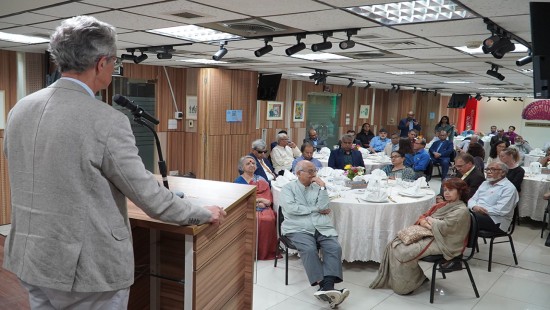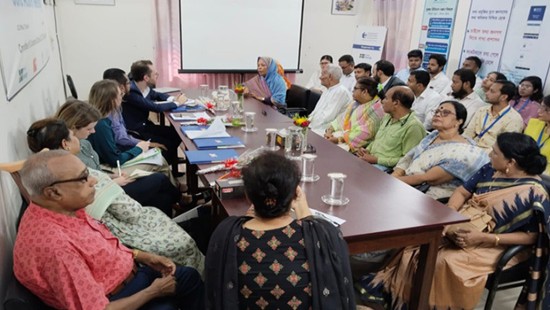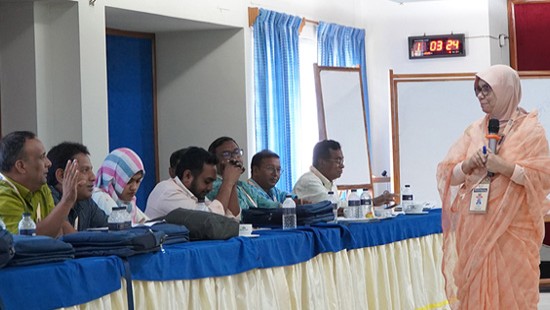Published: 07 September 2022

Transparency International Bangladesh (TIB) released the flagship study ‘Corruption in Service Sectors: National Household Survey 2021’ on 31 August 2022. As per survey results, though corruption has decreased in education, agriculture, and power services, law enforcement agencies tasked with controlling corruption have topped the charts with the highest level of corruption among the 17 surveyed service sectors.
Passport services, road transport, judicial services, and the health sector are among the top corrupt institutions, as corruption has risen significantly compared to the last survey, which was carried out in 2017.
More than 72 percent of households said they are forced to pay bribes as it is impossible to get public services without paying them. According to the survey, the estimated amount of bribes transacted in 2021 is almost BDT 10,830 crore (1.14 Billion USD). Each household paid an astounding BDT 6,640 as bribes to get services from different sectors, which is significantly higher than the average in 2017 (BDT 5,930).

All indicators point towards a significant rise in corruption during the pandemic as around 71 percent of households said they were victims of one or many forms of corruption in 2021, while it was 66.5 percent during the household survey of 2017. The survey results show that the amount of bribes significantly increased in 2021. Other forms of corruption have also plagued the service sector, as the overall figure shows a significant rise in all forms of corruption in some sectors. Despite digitalisation drives by the government, some institutions have fallen behind, and corruption has remained the same there (law enforcement, passport, BRTA, etc.). Corruption has also increased in some sectors, namely local governance, NGOs, insurance, etc.
The survey has also portrayed how rural people, marginalised communities, low-income households, and persons with disabilities are more affected by corruption in different sectors.

Saying that corruption control mechanisms are not applied adequately, TIB Executive Director Dr. Iftekharuzzaman said, “It is concerning that the ones that are supposed to keep corruption in check are the most corrupt themselves. More than 72 percent of people said they are forced to pay bribes, which means that corruption has been institutionalised in the service sectors. Despite the government’s mandate of zero tolerance against corruption, the anti-corruption agencies fail to take effective steps. The process of filing complaints against corruption is inadequate, and people do not believe that filing complaints would bring any positive results. The legal and institutional mechanisms to control corruption must be enforced strictly, and the people must raise their voice against corruption.”
To curb corruption in these sectors, TIB has also provided some recommendations, which include strict law enforcement against corrupt personnel, enactment of accountability mechanisms, digitalisation of services to limit contact between service seekers and providers, launching of one-stop centres in different service sectors, and proper implementation of the National Integrity Strategy (NIS) in all sectors.
The National Household Survey 2021 covered 15,454 households from 64 districts in Bangladesh. The details of the survey results, infographics, and all related documents can be viewed in this interactive dashboard on the TIB website.
To compare data on multilateral variables of the survey, visit - here

